Filter by

Yellow Alkaline Noodles Processing Technology and Quality Improvement
This Brief will provide an overview of various types of noodles with special emphasis on yellow alkaline noodles. It includes detailed discussions about yellow alkaline noodles including their ingredients, processing technology, the factors affecting their nutritional value and quality. Recent developments and potential ways of improving ingredient quality and enhancing their shelf life are the…
- Edition
- -
- ISBN/ISSN
- 978-3-319-12865-8
- Collation
- -
- Series Title
- -
- Call Number
- -
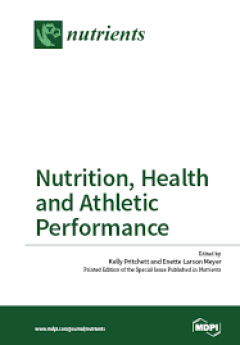
Nutrition, Health and Athletic Performance
Optimal nutrition is fundamental for enhancing training, recovery and performance in sport. Therefore, research has aimed to determine the efficacy of appropriate intake of nutrients, fluids, and supplements and their role in exercise performance. The purpose of this Special Issue entitled “Nutrition, Health and Athletic Performance” is to highlight recent research examining aspects of spor…
- Edition
- -
- ISBN/ISSN
- 978-3-03842-627-1
- Collation
- -
- Series Title
- -
- Call Number
- 572 NUT
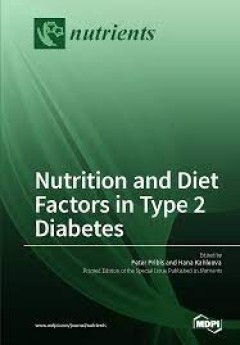
Nutrition and Diet Factors in Type 2 Diabetes
Diabetes mellitus has become a major public health burden. Approximately seven million people develop diabetes in both developed and developing countries every year, with the most dramatic increases occurring in Type 2 Diabetes. Especially alarming, is the rising incidence of Type 2 Diabetes in obese children before puberty.
- Edition
- -
- ISBN/ISSN
- 978-3-03842-915-9
- Collation
- -
- Series Title
- -
- Call Number
- 572 NUT
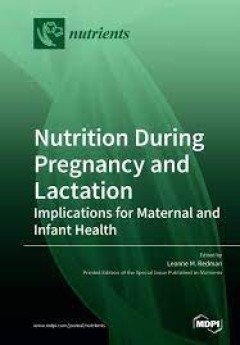
Nutrition During Pregnancy and Lactation : Implications for Maternal and Infa…
Pregnancy is a viewed as a window to future health. With the birth of the developmental origins of human adult disease hypothesis, research and clinical practice has turned its attention to the influence of maternal factors such as health and lifestyle surrounding pregnancy as a means to understand and prevent the inter-generational inheritance of chronic disease susceptibility. Outcomes during…
- Edition
- -
- ISBN/ISSN
- 978-3-03928-055-1
- Collation
- -
- Series Title
- -
- Call Number
- 572 NUT
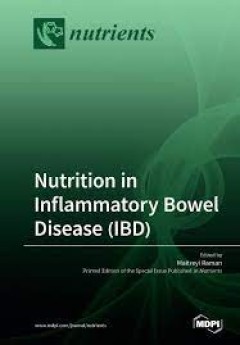
Nutrition in Inflammatory Bowel Disease (IBD)
The purpose of this Special Issue “Nutrition in Inflammatory Bowel Disease (IBD)” is to increase knowledge regarding the role of dietary composition and effects in IBD, describing the prevalence of malnutrition in IBD and the effect on clinical outcomes, discussing methods of nutrition risk screening and assessment in IBD, and reviewing mechanisms through which diet and dietary components m…
- Edition
- -
- ISBN/ISSN
- 978-3-03921-440-2
- Collation
- -
- Series Title
- -
- Call Number
- 572 NUT
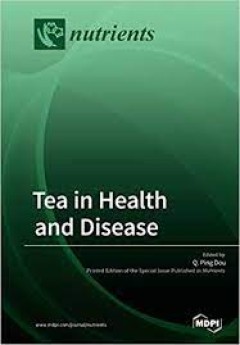
Tea in Health and Disease
Tea, made from the leaves of the Camellia senenisis plant, is the second most consumed beverage worldwide after water. Accumulating evidence from cellular, animal, epidemiological and clinical studies have linked tea consumption to various health benefits, such as chemoprevention of cancers, chronic inflammation, heart and liver diseases, diabetes, neurodegenerative diseases, etc. Although such…
- Edition
- -
- ISBN/ISSN
- 978-3-03897-987-6
- Collation
- -
- Series Title
- -
- Call Number
- 572 TEA
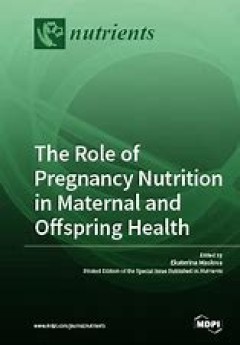
The Role of Pregnancy Nutrition in Maternal and Offspring Health
In pregnancy, maternal nutrition sustains and nourishes the developing child. Imbalances in either the direction of nutritional excess or deficiency can have adverse consequences for child health. In addition, more research now suggests that good pregnancy nutrition influences child health beyond pregnancy and delivery. This includes modifying the risk of child health outcomes as they enter chi…
- Edition
- -
- ISBN/ISSN
- 978-3-03921-997-1
- Collation
- -
- Series Title
- -
- Call Number
- 613 ROL
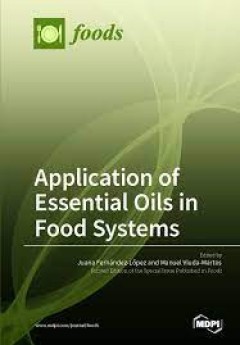
Application of Essential Oils in Food Systems
This Special Issue will look at the advances made in the essential oils. Essential oils have received increasing attention as natural additives for the shelf-life extension of food products, due to the risk in using synthetic preservatives. Synthetic additives can reduce food spoilage, but the present generation is very health conscious and believes in natural products rather than synthetic one…
- Edition
- -
- ISBN/ISSN
- 978-3-03897-048-4
- Collation
- -
- Series Title
- -
- Call Number
- 572 APP
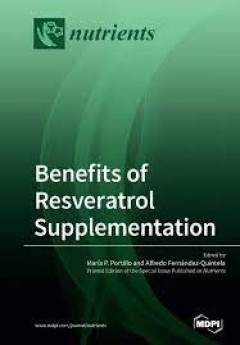
Benefits of Resveratrol Supplementation
Resveratrol (3,5,4’-trihydroxy-trans-stilbene) is a phytoalexin that belongs to the group of stilbenes. Some plants produce resveratrol in response to infection, stress, injury, or ultraviolet radiation. Resveratrol is also found in grapes, wine, grape juice, peanuts, and some berries, such as blueberries, bilberries, and cranberries. Moreover, the glucosides of resveratrol are also widely re…
- Edition
- -
- ISBN/ISSN
- 978-3-03921-276-7
- Collation
- -
- Series Title
- -
- Call Number
- 572 BEN
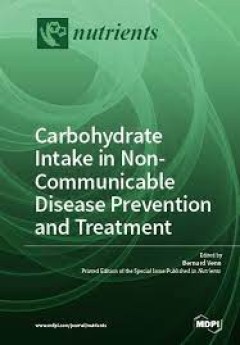
Carbohydrate Intake in Non-communicable Disease Prevention and Treatment
In 2011, carbohydrates provided 63% of the dietary energy intake to the world’s population. Historically, carbohydrate-rich diets have been associated with good health and longevity but there has been a move away from traditional carbohydrate-rich diets, with refined carbohydrate taking much criticism for contributing to non-communicable disease. The aim of this Special Issue is to discuss th…
- Edition
- -
- ISBN/ISSN
- 978-3-03897-819-0
- Collation
- -
- Series Title
- -
- Call Number
- 572 CAR
 Computer Science, Information & General Works
Computer Science, Information & General Works  Philosophy & Psychology
Philosophy & Psychology  Religion
Religion  Social Sciences
Social Sciences  Language
Language  Pure Science
Pure Science  Applied Sciences
Applied Sciences  Art & Recreation
Art & Recreation  Literature
Literature  History & Geography
History & Geography